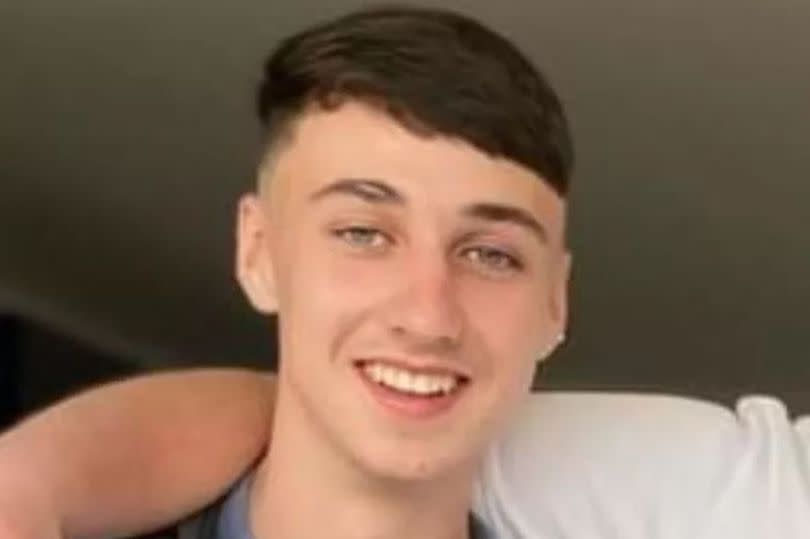Jay Slater's family say online conspiracy theories 'hinder' search for teen

As the search for Jay Slater, the British teenager who vanished while holidaying in Tenerife, enters its second week, Spanish rescuers persist in their efforts to scour the rugged mountain terrain where he was last spotted.
Local police, fire brigade staff and civil defence force volunteers have been utilising dogs, drones and helicopters in their quest to locate the 19-year-old apprentice bricklayer from Lancashire.
However, over 2,000 miles away in Britain, a group of internet detectives are conducting their own investigations, examining Google maps of the area where he went missing in the Rural de Teno National Park and circulating unfounded conspiracy theories, and in some instances, even cruel deliberate hoaxes about his disappearance.
READ MORE: Missing Jay Slater latest as Tenerife police call in help from Madrid
Don't miss the biggest and breaking stories by signing up to the BirminghamLive newsletter here.
The family and friends of Slater have expressed that the online attention the case has attracted is exacerbating their distress in what is already an unimaginably difficult situation. They also worry that the online "noise" surrounding the case could potentially hinder the investigation.
The last known contact Slater had with those close to him was when he called a friend named Lucy who had attended the same music festival but left before him. He informed her that his phone battery was at 1%, that he was thirsty, lost and that he had injured his leg on a cactus.
A Facebook group established by a friend of the family, intended for them to disseminate information and seek assistance from the public, titled "JAY SLATER MISSING ONLY OFFICIAL GROUP", has amassed more than half a million members.
In the rapidly growing "Jay Slater Discussions and Theories" group, it's a hotbed for outlandish speculation with trends that verge on black humour: "Does anyone else think that maybe the shark that was spotted in Gran Canaria has something to do with it? ", posts one.
Bizarre theories persist that Slater may have been abducted by "Moroccan drugs gangs", his disappearance stage-managed to swindle public donations, or mafia involvement somehow linked to his absence.
Well-known conspiracy peddler, David Icke also stokes the fires, asserting: "Lucy doesn't exist," and "Manchester airport [on Sunday] wasn't evacuated due to a power cut, and reason was much more chilling. These events are planned."
Wild conjecture is also rife over on X and TikTok, with crime aficionado accounts examining and sharing their own take on the mystery.
Paul Arnott, a Bedfordshire-based climber, even took matters into his hands by flying out to Tenerife to be part of the search. He shares snippets on Tiktok, telling Sky News, "I was following the story and I wasn't planning to come out but as soon as I heard they needed help, that's when I came out,".
And in a darker corner of the digital sphere, misleading posts heartlessly assert "he's home now" or make fictitious claims about finding a corpse. In the midst of this, friends report that trolls are mimicking them online, trying to breach Slater's personal Instagram account.
A photo that was widely shared last weekend, purporting to show a body discovered in Los Cristianos - the seaside resort where Slater had been holidaying with friends - was actually taken in Iceland.
Other conspiracy theories have directly targeted Slater's friends and family, including one ludicrous suggestion that his mother, Debbie Duncan, 55, is in fact Karen Matthews, who was imprisoned in 2008 for staging her daughter Shannon's kidnapping.
In an earlier interview with The Guardian, Duncan described the online speculation as "horrible", adding that Spanish police had informed her it could potentially obstruct their investigation.
"I think as well they have actually said that there's too much noise, that's affecting it," she stated.
She expressed her belief that "there's something untoward" about her son's disappearance, and that police told her they are exploring all possibilities. "They've said we're investigating all leads," Duncan revealed.
This isn't the first time a missing person's case has captivated the internet; last year, Nicola Bulley, 45, also from Lancashire, was missing for 23 days before her body was discovered. She had fallen into a river and drowned.
Her family condemned the "wildly inaccurate speculation being shared over numerous platforms", while YouTube and TikTok influencers swarmed the small village where she was last seen, prompting police to enforce a dispersal order.
"People believe in conspiracy theories as a way to explain the world when they feel uncertain, they feel threatened, they feel perilous," explained Daniel Jolley, assistant professor in social psychology at the University of Nottingham. He added that online speculation gains traction because "it's entertaining".

 Yahoo News
Yahoo News 
